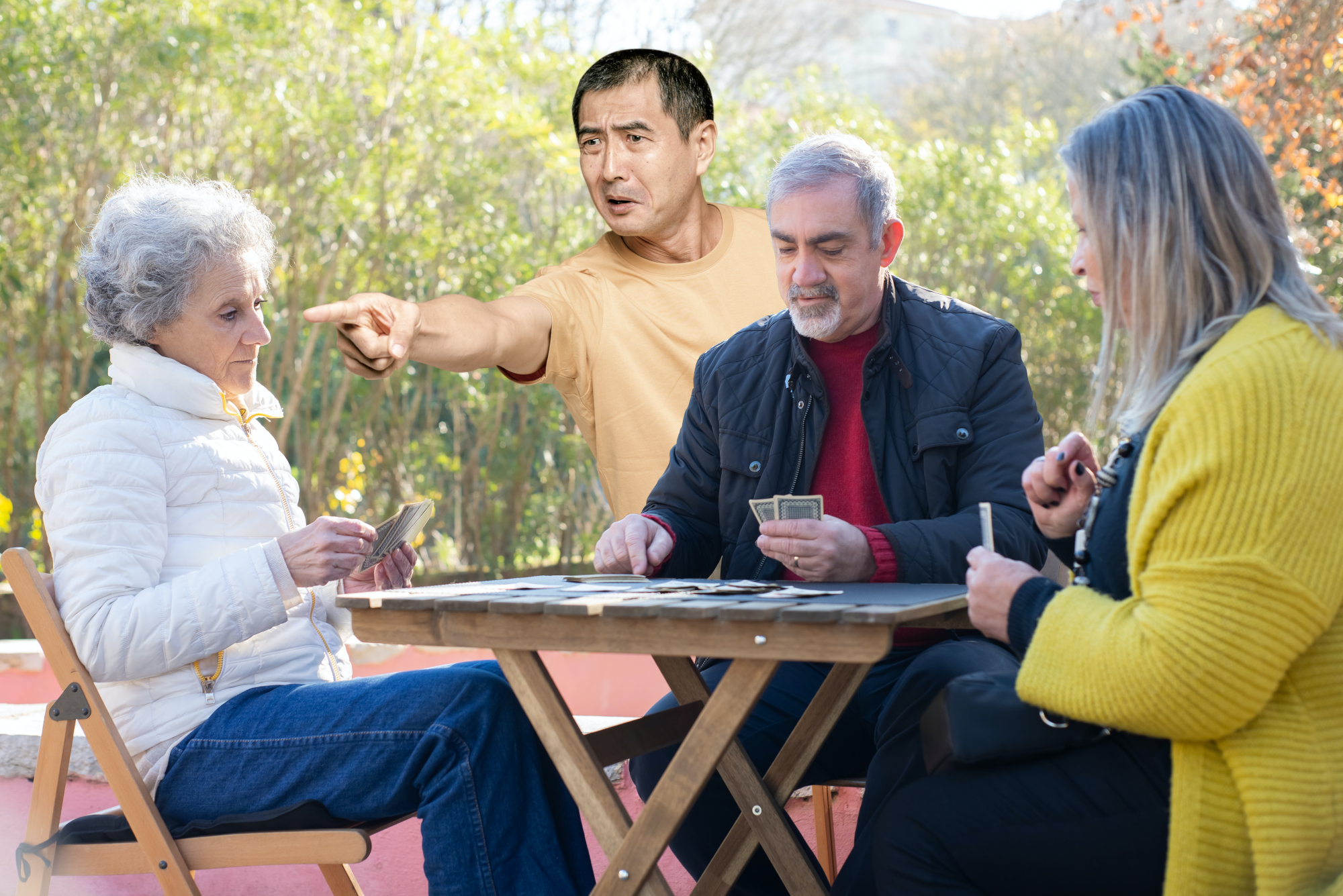How to Ignore the Board State and Base Threat Assessment on Jealousy and Spite

Learning how to properly assess threats and act accordingly is as important as understanding how the cards in play function. It's a skill akin to determining if a quick scrub of the crotch is enough to get you through the day sans shower; in either circumstance, choosing poorly can lead to disastrous outcomes for you and those around you.
Despite what you may have been told, when making threat assessments during a game of Commander, it's important to ignore the board state and base your actions on spite and jealousy, especially if it's stemming from your own insecurity.
Conventional wisdom and rational thinking might imply your Counterspell is best used against that board wipe about to ruin everyone's time. But is it the right call? Maybe that jerk next to you who's been flaunting their OG dual lands by having them in their deck would feel really horrible about being put in a bad position.
They're openly mocking your Guildgate by having way better lands, so why shouldn't they be taken down a peg or two? Is your own board worth their suffering? Probably. Will you lose right alongside them? Probably. But remember: the game of Commander isn't about winning, it's about making those who have inadvertently imposed an air of superiority suffer in a manner proportional to your own resulting misery.
Here's a pro tip everyone should write down: take notes! Taking notes is a big part of the game. Having a list of the names of the cards in an opponent's hand after you get a peek is extremely useful. However, if you want to be an efficient assessor of threats, you need to expand your note-taking. For example, most players will take notes, then discard them at the end of the game.
Why not take it a step further? Start recording the names of players who attacked you. Did someone decline your proposal for an alliance? Write it down. Remove your commander repeatedly? They're on the list now! Are all those inadvertent, perceived slights list-worthy too? You bet they are!

With a running tally of those who have wronged you, you have an invaluable tool to reference when making decisions during future games. Why shouldn't a player's actions last week have bearing on how much they deserve to be the only target of your ire? Should all be automatically forgiven at the end of each game? Heck no. You really liked all those Faerie tokens, and the maniac who cast Echoing Truth needs to pay in this game or the next.
By utilizing this kind of lateral thinking, you can begin to peel back the many layers of threat assessment. If doing it well was as easy as "keep the player likely to win from winning", writers wouldn't get paid for positing ridiculous ideas and lists on best practices and everyone would be an expert.
It's much more complex. It may seem like the threat is the opponent one card away from pulling off their combo. The rest of the table will probably insist that they're threat and might propose an alliance to prevent said combo.
Do you really want to ally with someone whose fuller, better-looking hair has been putting yours to shame all game? Why are they even here playing EDH when they could be filming a shampoo commercial? No. Screw them. Use that Counterspell to prevent Fabio over here from interrupting that other player's combo. They worked really hard to get to this point, after all.
When the table inevitably asks you, "What the hell are you doing?" be sure to mumble something about, "Probably uses way too much product," under your breath. Don't worry, people will think you're talking about buying cards or something.
As you can see, there are a plethora of elements to take into consideration when choosing who to be a total dick to. By focusing on the things that really bother you about the people you're playing with, threat assessment will become second nature. Some may call you petty. Others may claim you're ignoring the spirit of Commander. But are you? With so many variables at play, it's important to establish the nuances of your playstyle in a healthy rule 0 discussion before each game.
This is the time when you make it abundantly clear to other players that by putting off weird vibes, they're going to draw your irrational hostility. By signing this verbal waver, your opponents will have no recourse when you inevitably direct your pent-up rage to the opponent with the stupidest face.
Read more at pauperjumpstart.com